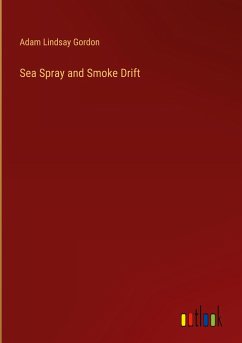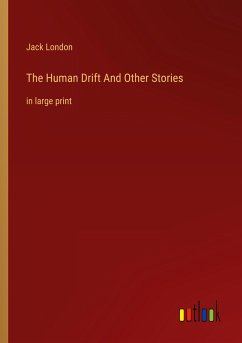
Drift
Versandkostenfrei!
Versandfertig in 1-2 Wochen
18,99 €
inkl. MwSt.

PAYBACK Punkte
9 °P sammeln!
James Smith, complex, energetic, and ambitious, has been shaped by his upbringing in a tightly knit, culturally rich, lower middle class family on Michigan's Upper Peninsula. He meets Ann Price, his future First Lady, at Michigan State. She helps him reconcile his love of the humanities, particularly history, with his determination to become a successful corporate manager. They marry and raise a family. In spite of his physical limitations and idiosyncrasies James Smith proves to be an exceptionally capable and creative executive. He becomes a CEO. He turns two companies around. Meanwhile, Ann...
James Smith, complex, energetic, and ambitious, has been shaped by his upbringing in a tightly knit, culturally rich, lower middle class family on Michigan's Upper Peninsula. He meets Ann Price, his future First Lady, at Michigan State. She helps him reconcile his love of the humanities, particularly history, with his determination to become a successful corporate manager. They marry and raise a family. In spite of his physical limitations and idiosyncrasies James Smith proves to be an exceptionally capable and creative executive. He becomes a CEO. He turns two companies around. Meanwhile, Ann teaches English in a public high school; earns her Ph.D.; becomes a teacher of teachers, a writer, and a controversial leader in education. James Smith is drafted by a newly elected President to turn around a cabinet department in hopeless disarray. An ingenious domestic nutcase plants explosives that destroy the President and everyone in the line of succession down to little James Smith. He is propelled into the Presidency and into the national hysteria precipitated by that murderous event. Determined not to turn the country over to the newly chosen, unscrupulous, and autocratic Speaker of the House, the Little President refuses to resign in spite of excruciating pressures from the Speaker, a generally hostile Media, and a badly frightened public Deeply shaken, depressed, and plagued by uncertainties, the Little President forges ahead to put his administration in place. After awhile, in a strange epiphany, he recognizes his independence, his freedom to be himself, his extraordinary opportunity, freed as he now is from the political parties and their operatives. He moves ahead with energy and determination to develop and fight for a visionary agenda that addresses the diseased political culture which surrounds him, and is intended to move his country away from forbidding trends onto more promising pathways. Meanwhile, he does his best to act Presidential in spite of his lack of charisma, his high squeaky voice, his peculiar mannerisms, and other limitations. Woven through and around his proposals for change, his State of the Union Addresses, various other speeches and public statements, is the living context of his Presidency: the Speaker's nefarious plotting to get rid of him; the many writers, commentators, historians, cartoonists, and ordinary citizens whose reactions to and/or interpretations of the Little President and/or his times are quoted or described. The 22nd Century historian-narrator, Professor David R. Robinson, an Oxford don, and a self involved enthusiast, brings to the story of the Little President an empathetic and scholarly point of view, but he learns that if he is to tell this story at all he must violate the highest standards of his craft and accept the fact that the 21st Century subject matter with which he must deal forces him to tolerate the "satirical deviance" in his work. EXCERPTS A concentrated critique of 21st Century American culture is provided by Sir Evelyn Wilson, a 22nd Century British historian, an older contemporary of the historian-narrator Oxford professor, David R. Robinson. The thesis of Wilson's book: Like the Venice of those years, that proud Italian city, which fought its long but losing battle against the rising tides and which, when viewed from far above, appeared to cling to its magnificence even after its forced abandonment, the United States as it slid down towards its engulfment in the Time of Troubles, appeared to be the proud world power on its surfaces, while from underneath, its economic preponderance, its social cohesion, its democratic political institutions, its leverage in international affairs, and above all, the cultural, educational, and civic values needed to support these imposing edifices were rotting away. Ann Price Smith, the spirited Fi














